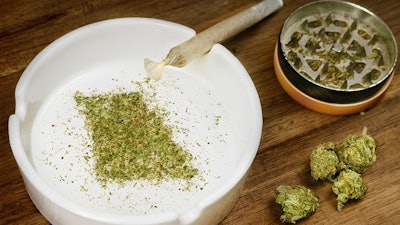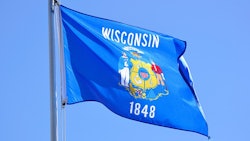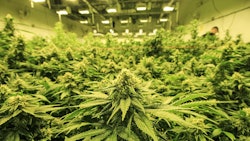
The Missouri Department of Health and Senior Services (DHSS) published the first draft of program rules Nov. 10 for the state’s forthcoming adult-use cannabis industry—less than 48 hours after voters approved Amendment 3.
RELATED: Missouri Voters Say ‘Yes’ to Adult-Use Cannabis Legalization
Upon adoption, the constitutional amendment directs DHSS officials to regulate and oversee Missouri’s adult-use cannabis market, including the licensing of cultivators, manufacturers, dispensaries and microbusiness facilities. Department officials will also promulgate regulations for testing, packaging and labeling, among other oversight functions.
The department has had the same regulatory authority over the state’s medical cannabis program since its adoption in 2018. The parallel programs are now being managed within the department’s Division of Cannabis Regulation.
On Dec. 8 (the effective date of the adult-use provisions under Amendment 3), the Division of Cannabis Regulation will begin accepting requests from existing medical cannabis facility licensees to convert to a “comprehensive” facility—to serve both markets.
“Because the department has 60 days from receipt to review and approve those requests, adult-use product should be available as early as February 2023,” a DHSS news release states. Conversion requests not processed within 60 days will be deemed approved, per Amendment 3’s text.
In addition, DHSS officials announced that adults 21 and older who intend to home cultivate up to six mature cannabis plants (with no more than 12 mature plants per residence) can apply for a noncommercial license as early as Feb. 6.
In the meantime, the Division of Cannabis Regulation is encouraging public feedback through Nov. 25 for its draft rules via an online suggestion form. The final rules will be filed for formal rulemaking in February.
Below are some of the proposed provisions for cultivation facilities included in first draft:
Cultivation Facilities
Cultivation licensees may cultivate cannabis in indoor, outdoor or greenhouse facilities, or in any combination of these cultivation practices.
1.) Each microbusiness wholesale facility utilizing any combination of indoor, outdoor or greenhouse facilities will be limited to no more than:
- 250 flowering cannabis plants;
- 250 nonflowering cannabis plants over 14 inches tall; and
- 250 nonflowering cannabis plants under 14 inches tall.
2.) Each indoor medical or comprehensive facility utilizing artificial lighting will be limited to no more than 30,000 square feet of flowering plant canopy space.
3.) Each outdoor medical or comprehensive facility utilizing natural lighting will be limited to no more than 2,800 flowering plants.
4.) Each medical or comprehensive greenhouse facility using a combination of natural and artificial lighting will be limited to, at the election of the licensee, either no more than 2,800 flowering plants or no more than 30,000 square feet of flowering plant canopy space.
5.) A medical or comprehensive facility that combines indoor, outdoor and/or greenhouse cultivation space will be limited to a ratio of the limits described above for each applicable cultivation practice, not to exceed 100% of total allowable flowering plant or flowering plant canopy space.
6.) If multiple cultivation licenses are operating in the same facility, the capacity limitations of the cultivation facility will be multiplied by the number of licenses.
The entirety of the draft rules for cultivation facilities can be viewed here.


























